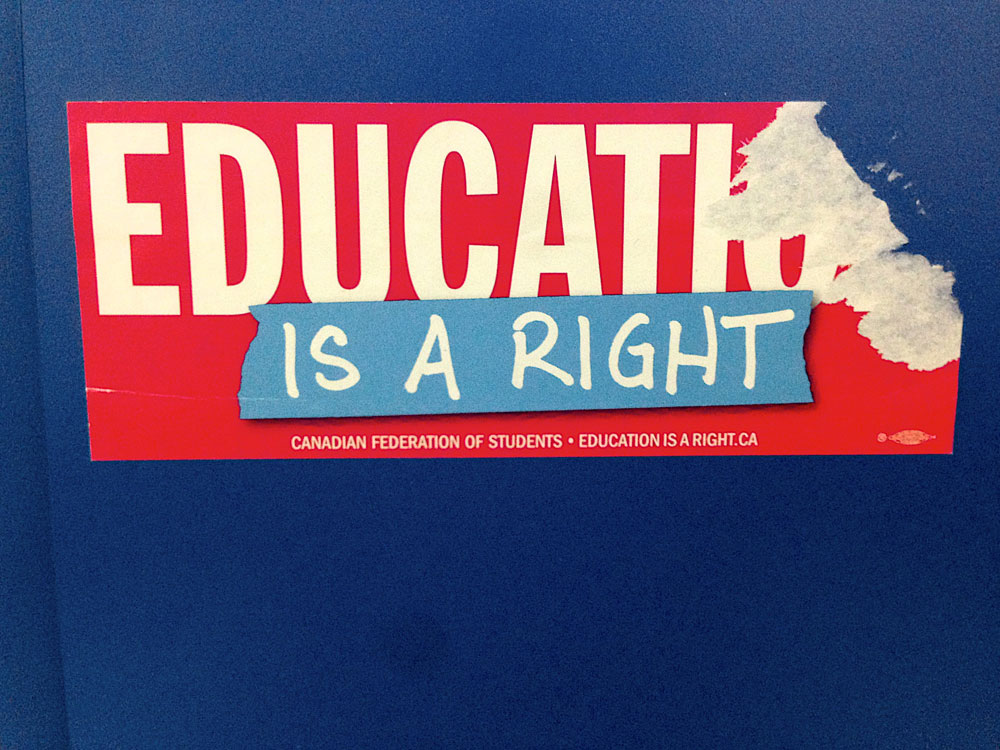
May 14, 2020; Guardian and the Washington Post
This weekend, graduates across the country celebrated their completion of high school in a ceremony that was broadcast on television and online and keynoted by former President Barack Obama. Those students watching from schools in Detroit may have another reason to cheer—the settlement of a lawsuit filed on behalf of students in the Detroit system in 2016.
The suit alleges that many of the graduates emerging from both public and charter schools in Detroit had limited literacy skills due to a system “functionally incapable of delivering access to literacy.” But on Thursday, prior to graduation, the state of Michigan settled the lawsuit, agreeing to improve Detroit school facilities and learning conditions.
The lawsuit, brought on behalf of seven student plaintiffs, had argued that their substandard school performance was due to “poor conditions within their classrooms, including missing or unqualified teachers, physically dangerous facilities, and inadequate books and materials.” They were deprived of the option of a “basic minimum education” that allows them a chance at foundational literacy, the suit alleged.
The suit was dismissed by a US appeals court in 2018 by a judge who insisted that the constitution does not guarantee a right to literacy. But on April 23rd of this year, the appeals court ruled 2–1 in the case Gary B., et al. v. Whitmer, et al. that the students in Detroit’s poorest schools are, indeed, entitled to a basic minimum education. And it is this suit that the governor of Michigan agreed to settle this past week.
This could be considered a landmark decision for the federal courts. By settling this lawsuit, Michigan Governor Gretchen Whitmer ends further litigation and keeps this issue from being appealed to the US Supreme Court, where it might not have fared so well. The suit was brought based on the due process and equal protection clauses of the 14th Amendment. But there is no specific guarantee of a right to literacy in the Constitution, and the US Supreme Court has never accepted the claim that the US Constitution provides a fundamental right to a “basic minimum education.”
Indeed, in 1973, a much more liberal US Supreme Court than exists today ruled 5–4 against a right to basic education in the case of San Antonio Independent School District v. Rodriguez. Whitmer’s action avoids the possibility of another negative court precedent that might reinforce that 1973 court decision.
Sign up for our free newsletters
Subscribe to NPQ's newsletters to have our top stories delivered directly to your inbox.
By signing up, you agree to our privacy policy and terms of use, and to receive messages from NPQ and our partners.
Mark Rosenbaum, the plaintiffs’ lead attorney, feels the settlement is “historic” even if it only applies in Michigan. Rosenbaum says:
By accepting the court’s decision that a minimum basic education is a foundational requirement for full participation in our democracy, Gov. Whitmer is acknowledging that no child should be denied his or her right to fully pursue the American Dream based on the color of their skin or their family’s income.
While there is much work left to be done, today’s settlement paves the way for the State of Michigan to fulfill its moral obligation to provide equal educational opportunities to children that have been denied a fair shake for far too long. This victory is their victory, and in this moment the children and their families and the teachers of Detroit have taught a nation what it means to fight for justice and win.
The settlement included a number of promises, including the following:
- Legislation that would boost funding by $99.4 million for literacy programs for Detroit public schools
- Money to go directly to the seven student-plaintiffs to further their educations
- Work in all school districts in Michigan to reduce class, racial, and ethnic disparities
- Creation of a Detroit literacy equity task force (with parents, students and experts) to evaluate annual progress and make recommendations to the governor
- Creation of a body to serve as a Detroit educational policy committee that will focus on the overall quality and stability of Detroit’s educational ecosystem
Clearly, the pandemic-induced economic shutdown might diminish available funding. But the basic concept of what this suit is about should not be lost.
Because the case was settled, the constitutional question remains in dispute. Still, the claims of the student plaintiffs who pursued this case merit our attention. After all, if you spend twelve years supposedly learning how to navigate and manage in our “literate” society, should you not emerge with a basic education that equips you with the ability to read and write?—Carole Levine












